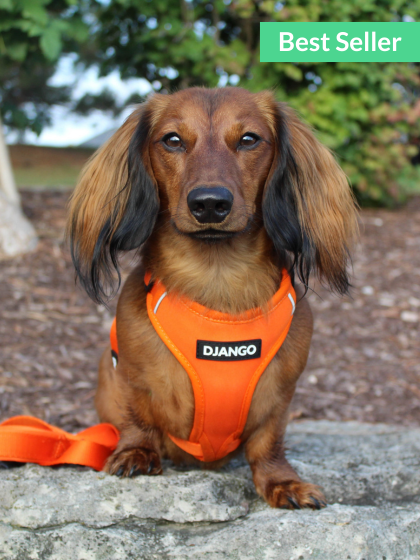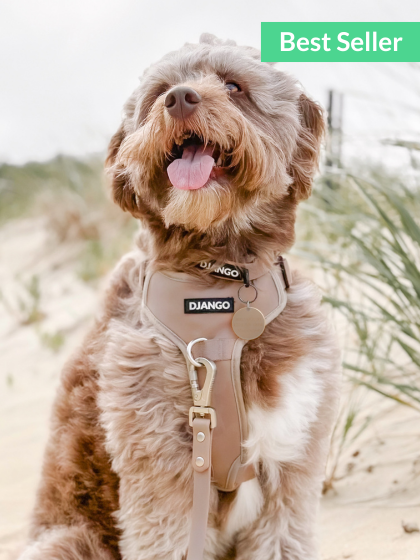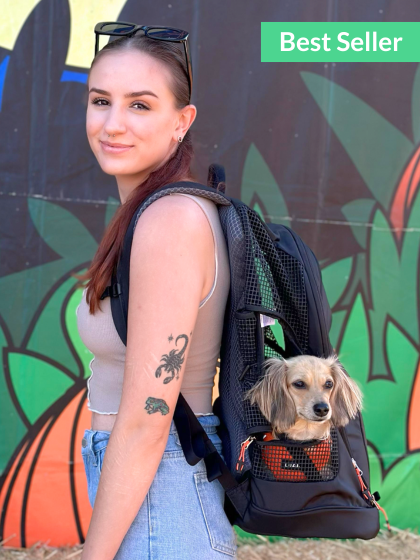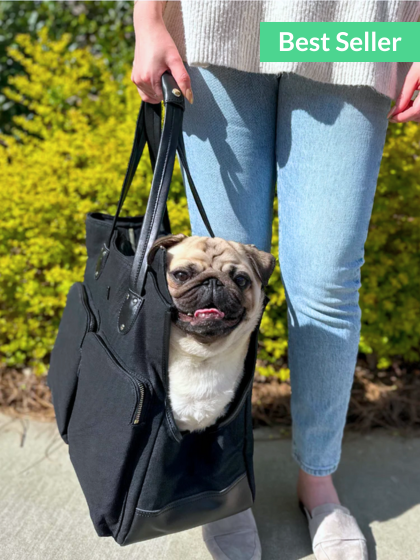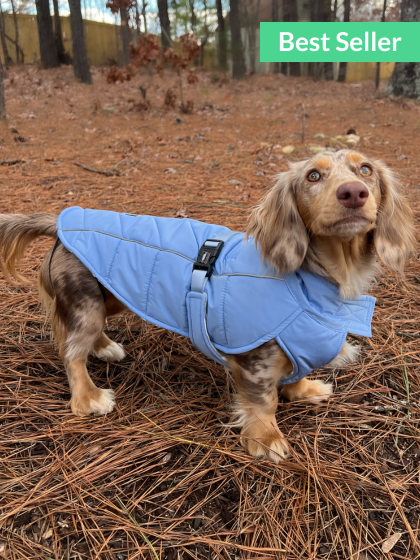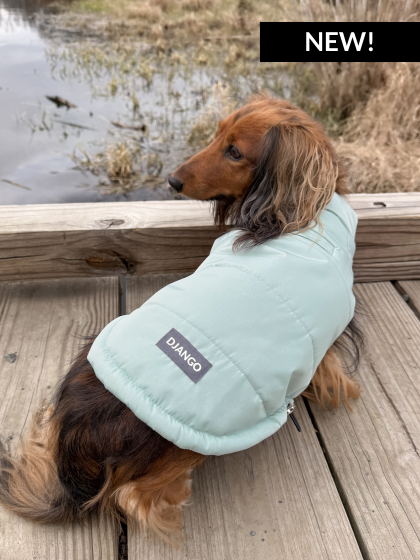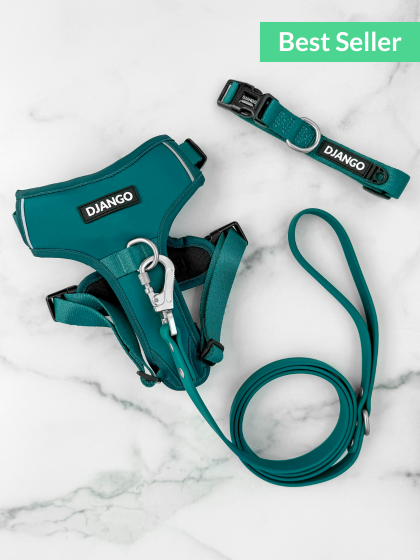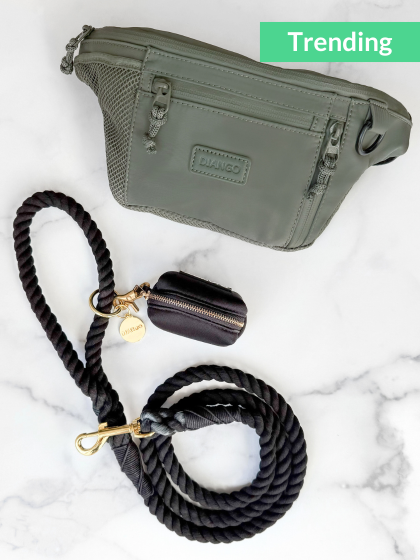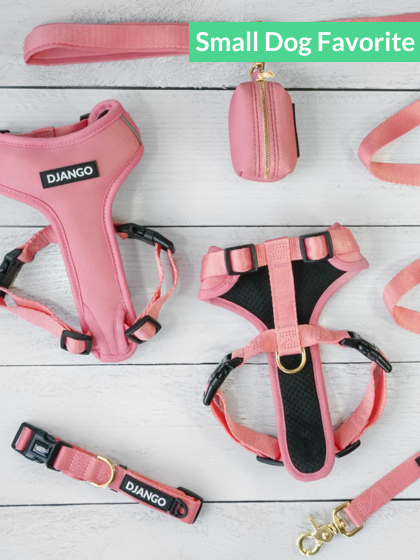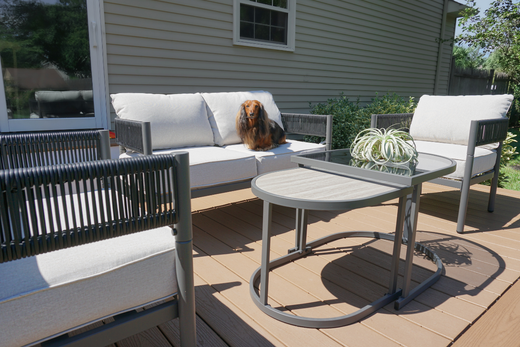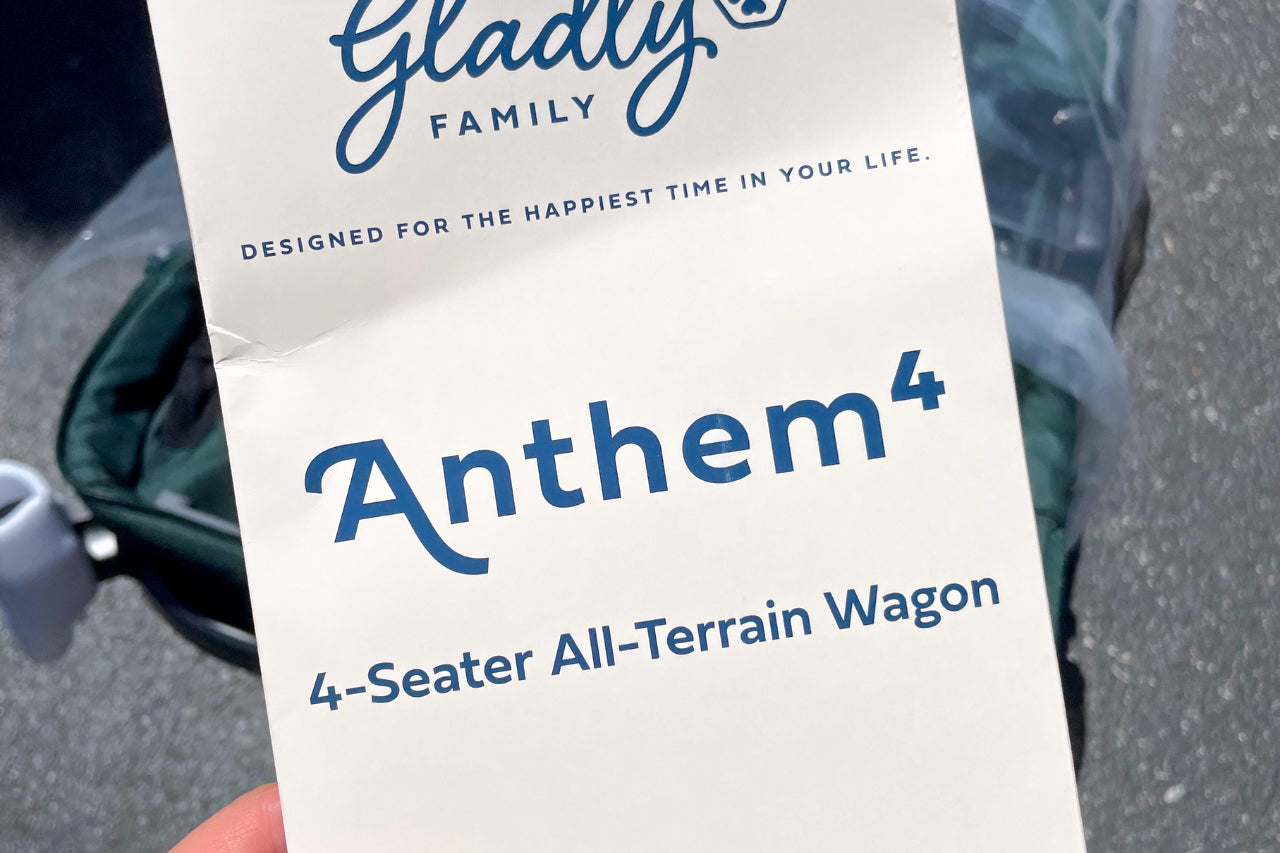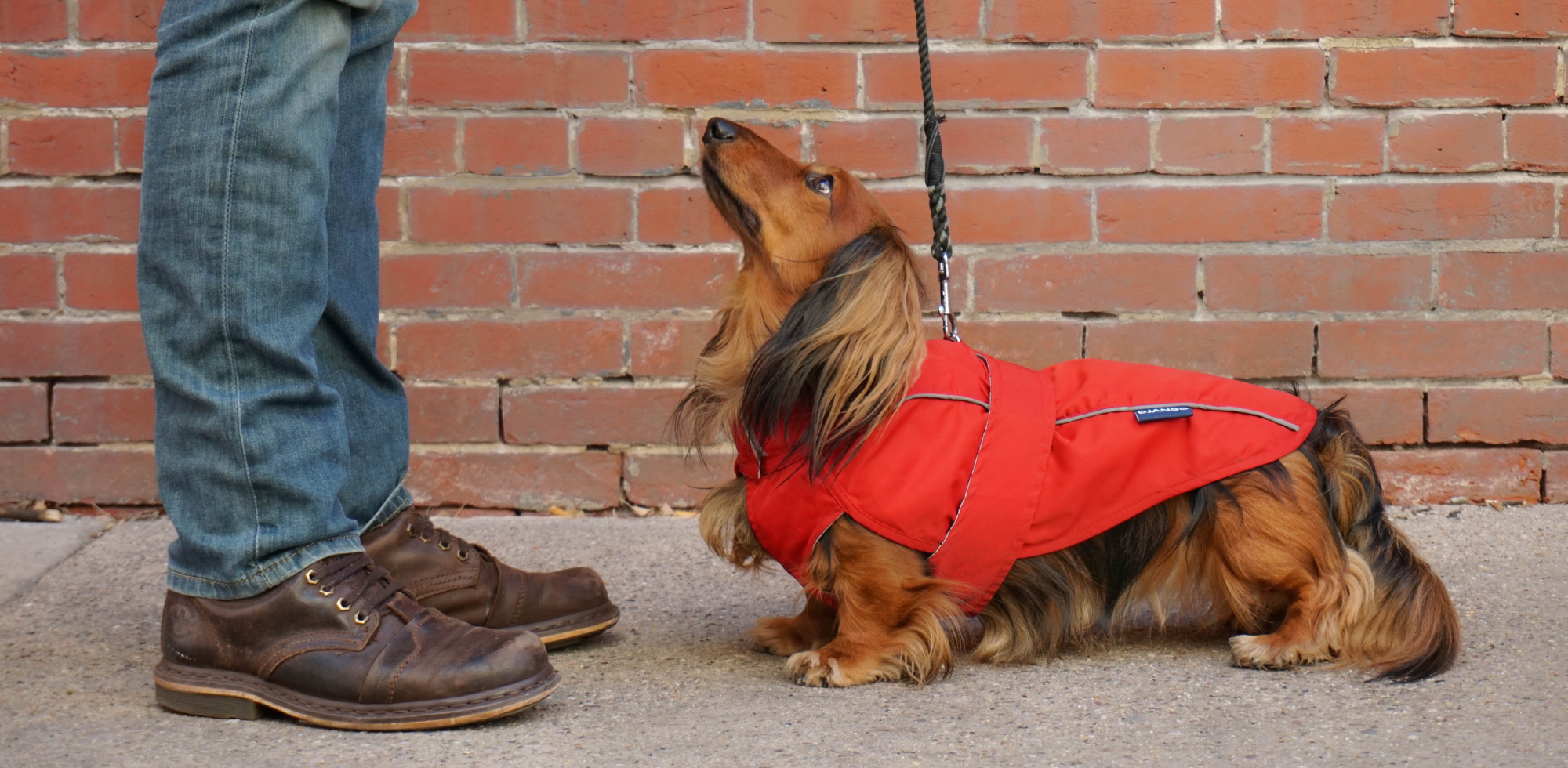Updated October 2025
Yes—dog backpack carriers can be great for dogs when they’re designed for safety, proper posture, and comfort. The key is choosing a high-quality, horizontal (natural-position) dog backpack carrier that supports your dog on all fours and allows easy repositioning.
Backpack carriers can be great modes of transport for dogs, especially small breeds, as long as they are used correctly and designed with dog safety and wellbeing in mind. For a deeper dive on safety basics, see Are Dog Backpack Carriers Safe?
Which dog backpack carrier is right for your dog? What features should you look for in a high-quality backpack carrier? What type of carrier should you avoid? If you’re deciding right now, don’t miss our guide How Do I Choose the Best Dog Backpack Carrier?
As makers of a premium dog backpack carrier, the DjangoPack™, and passionate dog owners ourselves, we have a ton of experience on these topics. Here are the benefits of dog backpack carriers and what to consider before investing in one. You can also read dog carrier backpack reviews for the DjangoPack™ in our latest roundup: Dog Carrier Backpack Reviews 2025.
Benefits of Dog Backpack Carriers
Convenience and Comfort for Dog Owners
- Hands-Free Mobility: Dog backpack carriers allow you to carry your dog while keeping your hands free for other activities, such as hiking, commuting, shopping, or navigating through busy areas.
- Comfort: Premium pet carriers are designed to maximize the comfort and wellbeing of the dog owner. The best dog backpack carriers will include high-end features such as soft, padded shoulder straps, adjustable and removable hip belt and sternum straps for weight distribution, multiple zipper pockets (for poop bags, dog treats, keys, phone, etc.), and a standard water bottle pocket.
Comfort and Wellbeing of Dogs
- Reduced Fatigue: A dog backpack carrier will offer a safe and comfortable resting place for your dog when he or she gets tired during a long walk or hike.
- Exercise Limitation: Dog backpack carriers are especially useful for dogs with mobility issues and those that cannot walk long distances. We found our dog backpack carrier invaluable for our dachshund, Django, after he underwent back surgery for Intervertebral Disc Disease (IVDD). Although Django recovered over time, his back legs are still weak to this day, and he often struggles to keep up with us on walks and outings. Our dog backpack carrier is a comfortable and supportive resting place for Django when his legs get tired and he is unable to continue walking. For common questions, see our DJANGO Dog Backpack Carrier FAQs.
- Anxiety Reduction: Dogs who are anxious in new environments or around other dogs may feel more secure and calm when being carried close to their owner.
- View From Above: The best dog backpack carriers have optional, ventilated “windows” that allow well-trained dogs to poke their heads out of the backpack side and watch the world go by.
Safety and Security
- Secure Environment: Well-made dog backpack carriers provide a safe and secure place for your dog, reducing the risk of him or her getting lost, injured, or anxious in unfamiliar or crowded environments. Learn more in our safety explainer.
- Protection from the Elements: Many backpack carriers offer some level of protection from rain, sun, and wind, keeping your dog comfortable in various weather conditions.
Practical for Travel
- Ease of Transport: Dog backpack carriers make it easier to bring your dog along on public transportation, in airports, or during car trips, as they often fit within size expectations for pets (always check local rules).
- Compact and Portable: Pet backpack carriers are typically lightweight and can be folded or packed away when not in use, making them easy to store and carry.
Given the versatility and practicality of dog backpack carriers, they can be a valuable accessory for pet owners who enjoy outdoor activities and frequently travel with their small dogs. For a deeper comparison of models and features, see our 2025 reviews.
Considerations When Choosing a Dog Backpack Carrier
Size Limits and Weight Capacity
- Ensure the dog backpack carrier is the right size for your dog. Your dog should have enough room to stand up, turn around, sit down, and shift weight.
- Height and length are everything! Pick a dog backpack carrier that comfortably accommodates your dog’s height and back length.
- Not all dog backpack carriers are made equal. Look for a model that is engineered to comfortably support your dog’s weight plus any personal items (water bottle, laptop, etc.). The best pet backpacks are designed like high-quality day packs—built to withstand load while offering a comfortable ride for both the dog and dog owner.
Useful Resource: How to Measure Your Dog
Ventilation
- Dogs overheat more easily than humans, and some dog breeds overheat more quickly than others.
- Whether you are an avid hiker or urban commuter, choose a pet backpack carrier with large mesh panels designed for ample airflow and cross ventilation.
Safety and Wellbeing of Your Dog
Nothing is more important than your dog's security and wellbeing. Look for a dog carrier backpack with the following key safety features:
- Locking zippers which prevent your dog from nudging open the zipper from the inside of the pet backpack carrier.
- A bag-to-harness tether which secures your dog inside the backpack.
- A very sturdy and resilient base that evenly supports your dog's weight and back.
Why Horizontal Dog Backpack Carriers Are the Best Option
- The best dog backpack carriers support dogs horizontally instead of vertically. These carriers allow your canine companion to be on all fours at all times and do not position the dog in an unnatural or uncomfortable posture.
- Vertical-style dog carrier backpacks—those where the dog is in a vertical position at all times—are not recommended and can be dangerous for many dogs and certain dog breeds.
- The vertical positioning of the dog puts excessive downward pressure and stress on the spine.
- Vertical-style dog backpack carriers are especially risky for dog breeds prone to back problems, dogs with sensitive backs, dogs with Intervertebral Disc Disease like our dachshund Django, and dogs that are overweight. For a full discussion, see Are Backpack Carriers Good for Dogs?

